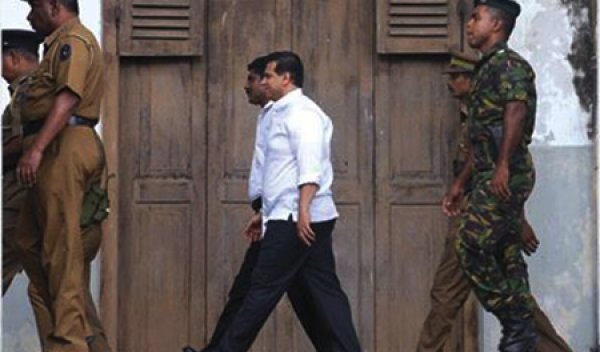On the 08th of September the three judge panel was divided on the judgement with the chairman of the panel Justice Shiran Gunaratne in favour of acquitting all the defendants on the grounds that there was inadequate evidence to prove without doubt the charges, while two Judges Pathmini N. Ranawaka Gunatilleke and M.C.B.S. Moraes unanimously decided that the prosecutors have proved the five accused guilty beyond a reasonable doubt.
Slander Campaign
Subsequent to the court ruling, a slander campaign had been initiated against justice Shiran Gunaratne, by some print and web media.
Allegations have been levelled against him that he is a Rajapaksa supporter and he had been bribed heavily to issue a not-guilty verdict. A complaint has also been lodged with the FCID calling for his bank accounts and assets to be scrutinised.
When several lawyers were contacted regarding this matter, their collective view was that if the verdict of this judge had been influenced through offering money or being threatened and this sort of influencing of the judiciary can take place under the current good governance regime, then there is a serious issue in the entire judiciary system that the government needs to immediately intervene and rectify.
Subjected to Rajapaksa intimidation
However, although some parties have been quick to indicate that judge Shiran Gunaratne is an ally of the Rajapaksa regime, during the previous regime, disgusted over the political interference in the judiciary system, he had left the country and settled down in the USA, pointed out a lawyer.
He had left the country subsequent to the case where the BBS had attacked the Calvary church in Malabe in 2008 and having all the evidence to convict the whole BBS clan, he was forced to call for both parties to reconcile and dismiss the case due to political interference where the BBS was being protected by the Rajapaksa regime.
Having left the country after that incident, disgusted with the state of the judiciary in the country, he had returned only after the good governance regime assumed power.
Therefore some lawyers point out that just because he had felt that there was not enough evidence to prove without doubt that Duminda Silva and four others had committed the murder and issued a verdict of not guilty, it was totally unfair to brand him a Rajapaksa ally.
Greater weight for public opinion
The lawyers point out that without any doubt all three judges in the bench are those with impeccable records.
What should be considered is how credible and just the legal arguments were in the judgements that were issued by the judges in order to confirm the judgements, lawyers pointed out.
Accordingly, in this case Shiran Gunaratne had explained meticulously why the defendants could not be charged under certain sections of the penal code as there were certain discrepancies in the evidence due to the witnesses changing their story at various times.
However, judge Padmini Ranawaka had based her judgement more on public views rather than on regulatory verdict.
Generally in lesser developed countries, it is the normal practice to base court verdicts more on public opinion. However, basing judgements on pure emotional factors is highly debatable.
However, the lawyers point out that when the Supreme Court verdict is issued regarding this debatable situation, a definite fair and unbiased verdict is anticipated.
(Sathhanda)






